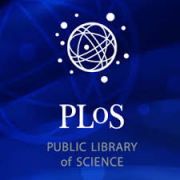Posted on March 01, 2016
Source: PLoS One

Several clinical studies show that individuals with HIV are at an increased risk for worsened lung function and for the development of COPD, although the mechanism underlying this increased susceptibility is poorly understood. The airway epithelium, situated at the interface between the external environment and the lung parenchyma, acts as a physical and immunological barrier that secretes mucins and cytokines in response to noxious stimuli which can contribute to the pathobiology of chronic obstructive pulmonary disease (COPD). We sought to determine the effects of HIV on the lung epithelium. We grew primary normal human bronchial epithelial (NHBE) cells and primary lung epithelial cells isolated from bronchial brushings of patients to confluence and allowed them to differentiate at an air- liquid interface (ALI) to assess the effects of HIV on the lung epithelium. We assessed changes in monolayer permeability as well as the expression of E-cadherin and inflammatory modulators to determine the effect of HIV on the lung epithelium. We measured E-cadherin protein abundance in patients with HIV compared to normal controls. Cell associated HIV RNA and DNA were quantified and the p24 viral antigen was measured in culture supernatant. Surprisingly, X4, not R5, tropic virus decreased expression of E-cadherin and increased monolayer permeability. While there was some transcriptional regulation of E-cadherin, there was significant increase in lysosome-mediated protein degradation in cells exposed to X4 tropic HIV. Interaction with CXCR4 and viral fusion with the epithelial cell were required to induce the epithelial changes. X4 tropic virus was able to enter the airway epithelial cells but not replicate in these cells, while R5 tropic viruses did not enter the epithelial cells. Significantly, X4 tropic HIV induced the expression of intercellular adhesion molecule-1 (ICAM-1) and activated extracellular signal-regulated kinase (ERK). We demonstrate that HIV can enter airway epithelial cells and alter their function by impairing cell-cell adhesion and increasing the expression of inflammatory mediators. These observed changes may contribute local inflammation, which can lead to lung function decline and increased susceptibility to COPD in HIV patients.